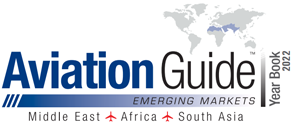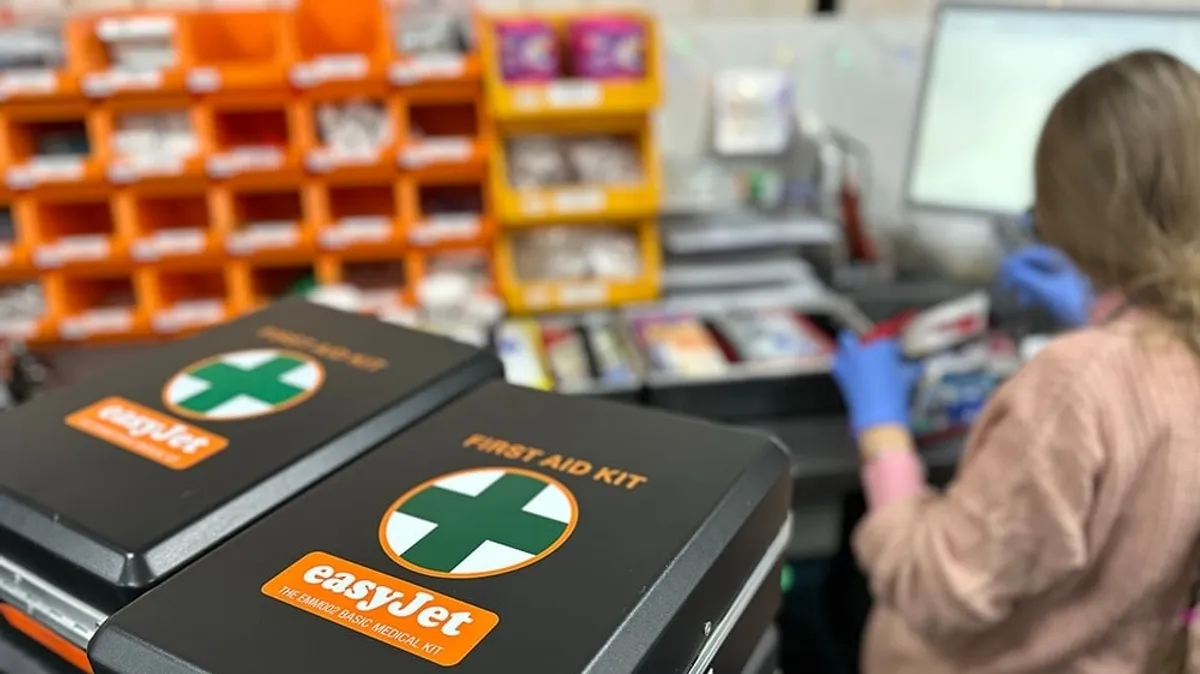Ametek MRO AEM is tracking thousands of aircraft medical kit parts using a bespoke kit processing software developed by its Aeromedic division. Essentially, this tracks the expiration date and batch number of every first aid component in the kits.
The bespoke system was developed solely by AEM with a specialist IT developer and integrates with AEM’s ERP system, handling the manufacture, repair and refurbishment of all Aeromedic kits. The system supports more than 200,000 processed kits a year for several major airline carriers worldwide, according to Steven Rowley, engineering director at AEM.
As Rowley explains, the system maintains a master database containing the contents of each individually serialized kit. He says technicians scan barcodes on the kits to recall individual contents, before inspecting and exchanging out the content as required. “Stock issuing is managed via touch screen, and upon completion of a kit refurbishment, the system automatically produces a new contents list and overall expiry date of the kit. The application manages all aspects of inventory control and traceability, giving us access to track products, their batch traceability and expiration at any given time,” he says.
Aeromedic in late January secured a three-year easyJet medical kit contract at its Luton facility in the UK. The agreement will support the refurbishment services of first aid kits and medical kits across the full easyJet fleet—including easyJet’s other European air operator certificates, Rowley confirms.
Interestingly, there are several regulations governing the assembly of these kits and, as AEM suggests, Aeromedic brought its experience and knowledge of the UK Civil Aviation Authority (CAA) and European Union Aviation Safety Agency (EASA) regulatory approvals to guide on kit contents.
Rowley says AEM has UK medicines and healthcare products regulatory agency (MHRA) and a wholesale distribution authorization license, which permits the company to purchase, possess and engage in the supply of medicinal products. Additionally, an MHRA manufacturing license allows the company to repackage medicines into smaller quantities, which are signed off on by a qualified person for batch release and fitment to customers’ kits.
“Many medicinal products are supplied in large pack quantities, which are not suitable for aircraft medical kits,” Rowley says. “Our challenge is to offset the overall size and weight of kits with suitable quantities of each item that align with the mandatory minimum air operations’ requirements for flight.”
Rowley points out that medical kit contents are designed to be compliant with the national regulator of the aircraft’s registration. For example, in Europe, kits would be designed to be compliant with EASA regulations. Kit contents are further supplemented with selected items by the medical teams that oversee the airline’s healthcare and safety services.
Some medical kits contain controlled drugs, which requires AEM to work closely, for instance, with the UK’s Home Office and import control handlers around the world to actively manage controlled substance import and export licenses. “We also hold the CAA department for transport known supplier status and this supports the direct delivery of screened and security verified kits into airside locations across UK airports,” adds Rowley.
As a keynote for best practice in kit management, Rowley highlights the importance of traceability. “In such a highly regulated space, having well developed and documented procedures and processes is key to support operations, regulators and customers,” he stresses.










